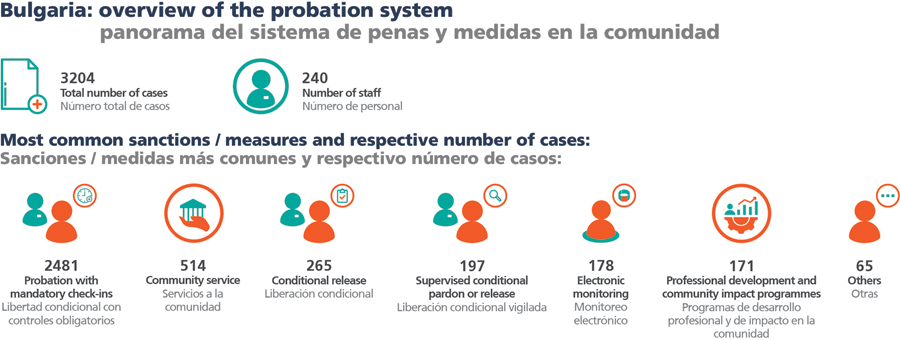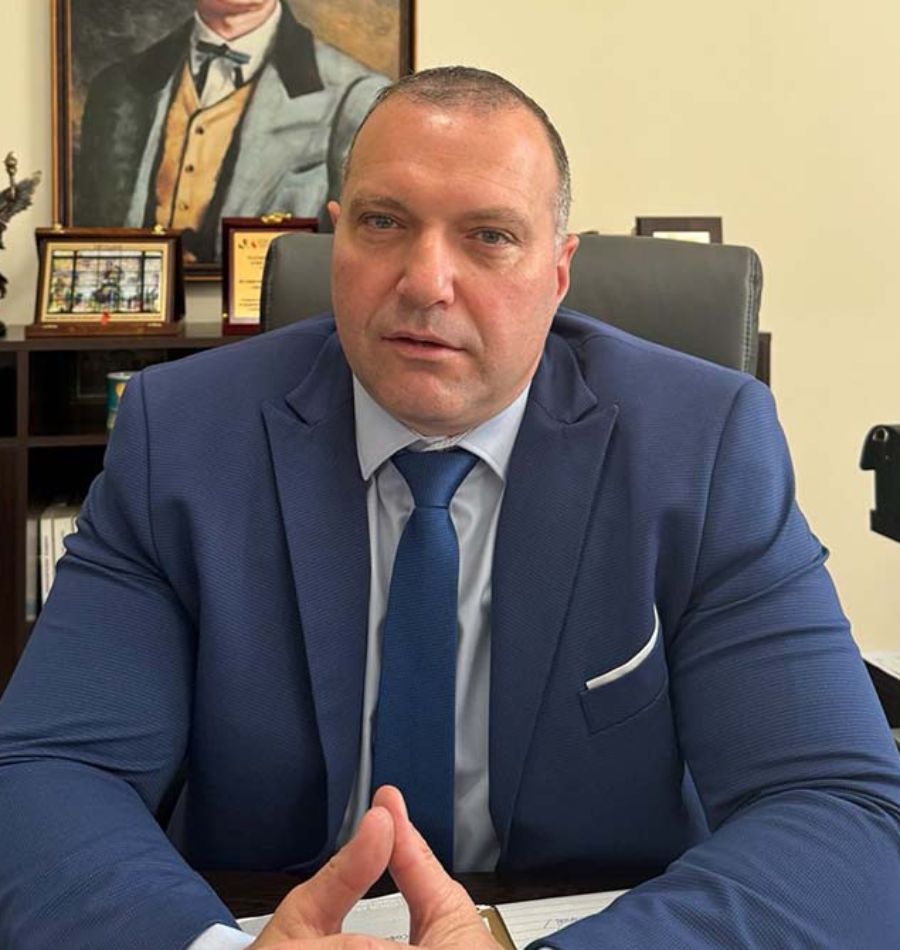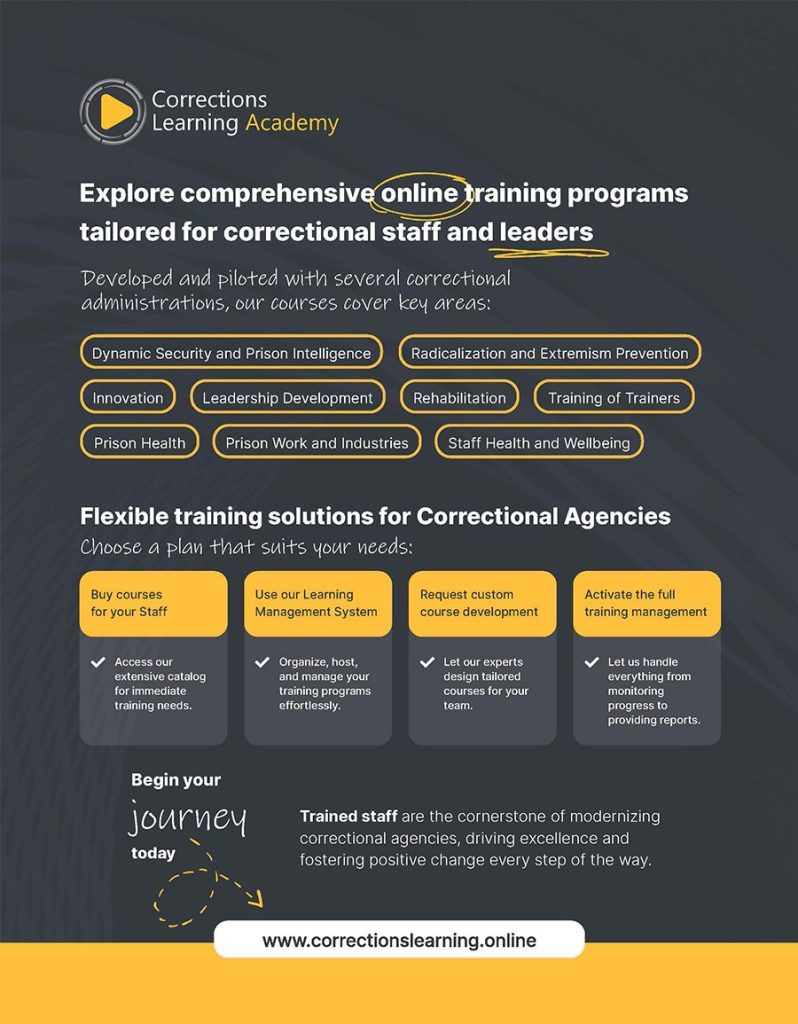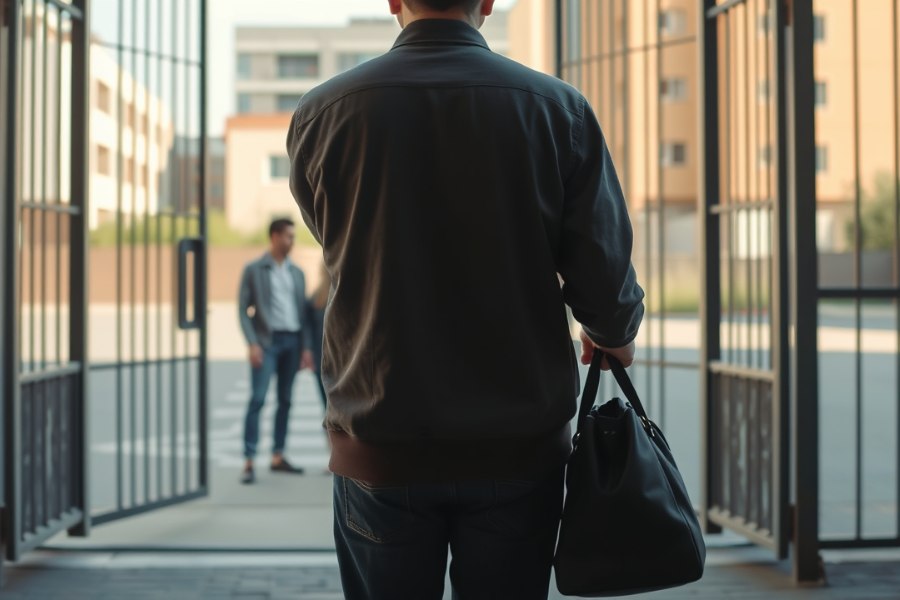Interview
Ivaylo Yordanov
Chief Commissioner, General Directorate “Execution of Sentences”, Bulgaria
What is your vision for the Bulgarian penitentiary system and what specific goals are you currently working towards?
IY: I am trying to reshape the image of the Bulgarian penitentiary system. Only a few decades ago, prisons were seen mainly as places for punishment rather than rehabilitation. This perception of society differs greatly from the view of prison professionals, who understand that their work is paramount to creating a new penitentiary culture.
An important task of the Bulgarian penitentiary system is to provide inmates with a safe environment, and meaningful activities that encourage change and finding new meaning in life.
The General Directorate “Execution of Sentences” (GDES) is implementing its most ambitious project to date, entitled “Increasing staff capacity, building a pilot prison linked to a training centre and improving inmate rehabilitation”, funded under the Norwegian Financial Mechanism (NFM) 2014-2021.
This project involves the construction of a new, modern prison complex, with a closed-type facility for up to 400 prisoners, a STEM educational centre, a transition ward and a centre for social inclusion services. Notably, this will be a prison without bars, designed with conditions that are as similar as possible to the outside world.
The social services centre will provide an opportunity for prisoners to engage in activities aimed at full integration into society, education, employment and creative pursuits. It will also facilitate targeted initiatives with the families of prisoners, seeking to strengthen their involvement and family ties, with additional mentorship for parents and children.
Representatives of external stakeholders and civil society – social services, health services, labour organisations and NGOs – will be housed in the Centre for Social Inclusion Services.
Another key element of the project is its emphasis on staff training with the construction of a state-of-the-art training centre capable of holding up to 100 trainees and featuring a conference area.
Staff is the most important pillar of our organisation, and they require support in their complex but very humane daily mission.
Accordingly, a new initial staff training programme has been developed, focusing on building both knowledge and skills. The programme is highly interactive, in line with the best approaches and trends for training young people. It covers dynamic security, communication, professional ethics, understanding differences, working with children of prisoners and other vulnerable groups, and the prevention of radicalisation and violent extremism, among other areas.
The learning process will include the use of virtual reality, modern technologies, and artificial intelligence. With the help of international experts and psychologists, we have developed and are implementing a special programme called the “Burnout Prevention Training Module”, which aims to inform and prepare employees to deal with professional burnout at work.
For the first time in the prison system, a Bulgarian Risk, Needs and Strengths Assessment Tool (BRiNSAT) was developed by Prof. Ioan Durnescu of the University of Bucharest.
I am convinced that even with the most up-to-date infrastructure, unless it is filled with content, our efforts will not have the desired effect, for either the prisoners or society. For this reason, we have developed a new Conceptual Framework for the Rehabilitation and Social Reintegration of Prisoners. Within this concept framework, three programmes have been developed: a mentoring programme inspired by the Norwegian model entitled “contact officer”; a “Life Project” programme aimed at young people, focusing on marginalised groups; and a programme for individuals dealing with addiction.

How do you perceive the role of international cooperation in the ongoing reforms within the Bulgarian penitentiary system?
IY: The role of international cooperation is of paramount importance to me and the prison administration that I lead. This is the basis of the creation of the International Cooperation and Training of Staff Department, which is responsible for all international activities of GDES, European projects and staff training.
Thanks to our highly successful cooperation, we are partners in a number of cross-border projects in the field of radicalisation and violent extremism, probation and prison management.
We are members of the International Correctional Services Association, the Confederation of European Probation, and the European Prison Organisation (Europris). We work in collaboration with IPS, RAN, Penal Reform International, the Council of Europe and other international organisations and correctional services.
This involvement in international initiatives has given us the opportunity to understand that prison systems around the world differ, but the similarities between them are significantly more numerous since the challenges that we face are largely the same.
IY: By learning about the best practices used by our colleagues to address a given problem and implementing them within our context, we manage to continually enrich and improve our staff’s professional training. During the recent COVID-19 pandemic, we continuously monitored the actions of other European countries and their approaches to limiting the spread of infection in detention facilities.
This seems to be one of my most vivid memories of using international cooperation in the rather dynamic and constantly changing conditions that we faced together, managing to protect prisoners and prison staff from a very grim scenario.

Can you present the panorama of community corrections in Bulgaria, highlighting the specificities, challenges and achievements in this field?
IY: Probation has proven to be the most effective alternative to imprisonment and the most effective method of preventing subsequent crimes. The probation service was established in 2005, by recommendation of the European Union. Over these 19 years, it has proved to be an instrument that works actively and in cooperation with local authorities.
One of the achievements is the introduction of electronic monitoring as part of the Bulgarian Probation Service for the first time in 2010 under a project funded by the EU. In 2019, electronic monitoring was introduced as a national programme.
During these six years, both individuals under house arrest and those having a restrictive probation measure have been under electronic monitoring, with extremely positive results.
The work of probation officers and the specific functions that they perform in the penal enforcement system presuppose the existence of specific competences to ensure the effectiveness of the probation measures imposed by the court. The development of probation services, changes in the legal framework, as well as changes in society and in the socio-demographic profile of offenders, pose challenges for continuous improvement to the probation officers.
This challenge concerns both the enhancement of their professional competencies within the context of the specific activity that they carry out and their continuing training and qualification over the long term. In this regard, a new training programme for probation officers and management staff was developed within the framework of the project “Strengthening the application of alternative measures to imprisonment” under the NFM 2014-2021.
With the help of this project, a major step was taken towards strengthening cooperation with other institutions in the implementation of community sanctions, our biggest challenge. The quest for more effective measures and the need to improve the supervision of offenders in the community in order to align with European standards has driven our efforts to study and potentially adopt successful restorative justice as alternatives to imprisonment, including mediation. Of course, the definitive and sustainable implementation of new tools is a process that will take time and further rethinking of our legislative framework.
What are the main priorities for modernising the penitentiary system? In addition, which innovations and/or technologies do you think are most key to optimally achieving GDES’ goals?
IY: The improvement and modernisation of the system for the execution of sentences in Bulgaria continue to be an important priority for the Ministry of Justice and GDES. We are focused on innovations and modern solutions to make our system a model for the management of a public institution that plays a very important role in the protection and development of our society. At some point, the majority of prisoners will leave prison and return to our midst, and this is a strong argument for us as a society to take greater interest and responsibility for what happens behind the high walls of the prison, and even more so afterwards. We need to ensure normal and humane conditions in prisons, to help them, with the power of our professionalism, rethink their lives and return to us as good citizens and successful individuals.
One of our future initiatives is to pilot the introduction of 'green prisons', thereby reducing environmental impact, improving resource efficiency and integrating nature into our infrastructure and processes.
IY: While I believe that the physical environment is only part of the complex care needed by prisoners, its design and layout have a significant impact on people’s behaviour. Incorporating elements such as nature, greenery, colours, and light can improve inmates’ health, stress levels and aggression.
This initiative will also provide incarcerated individuals with the opportunity to gain further qualifications in the green technology and manufacturing sector, thereby improving their chances of entering the labour market upon release.
We plan to increase our focus on research to help evaluate the impact of our actions and implement evidence-based solutions.
Last but not least, we will invest in training our staff and young correctional leaders, who, at some point, will take over the future of the prison system in this country.
Ivailo Yordanov
Chief Commissioner, General Directorate "Execution of Sentences", Bulgaria
Ivailo Yordanov began his career in 2000 as a prison guard at Sofia Prison. He quickly advanced, serving as Principal Prison Officer, Head of Surveillance and Security Services, and Head of the Kremikovtzi Prison Hostel. In 2013, he earned a Master’s degree in Law. His tenure at the General Directorate “Execution of Sentences” began as Head of Prison Security and Safety, where he oversaw prison security nationwide and contributed to prison guard training programmes. Since 2019, he has served as the Director General of GDES, following a year as Deputy Director General.
Advertisement



